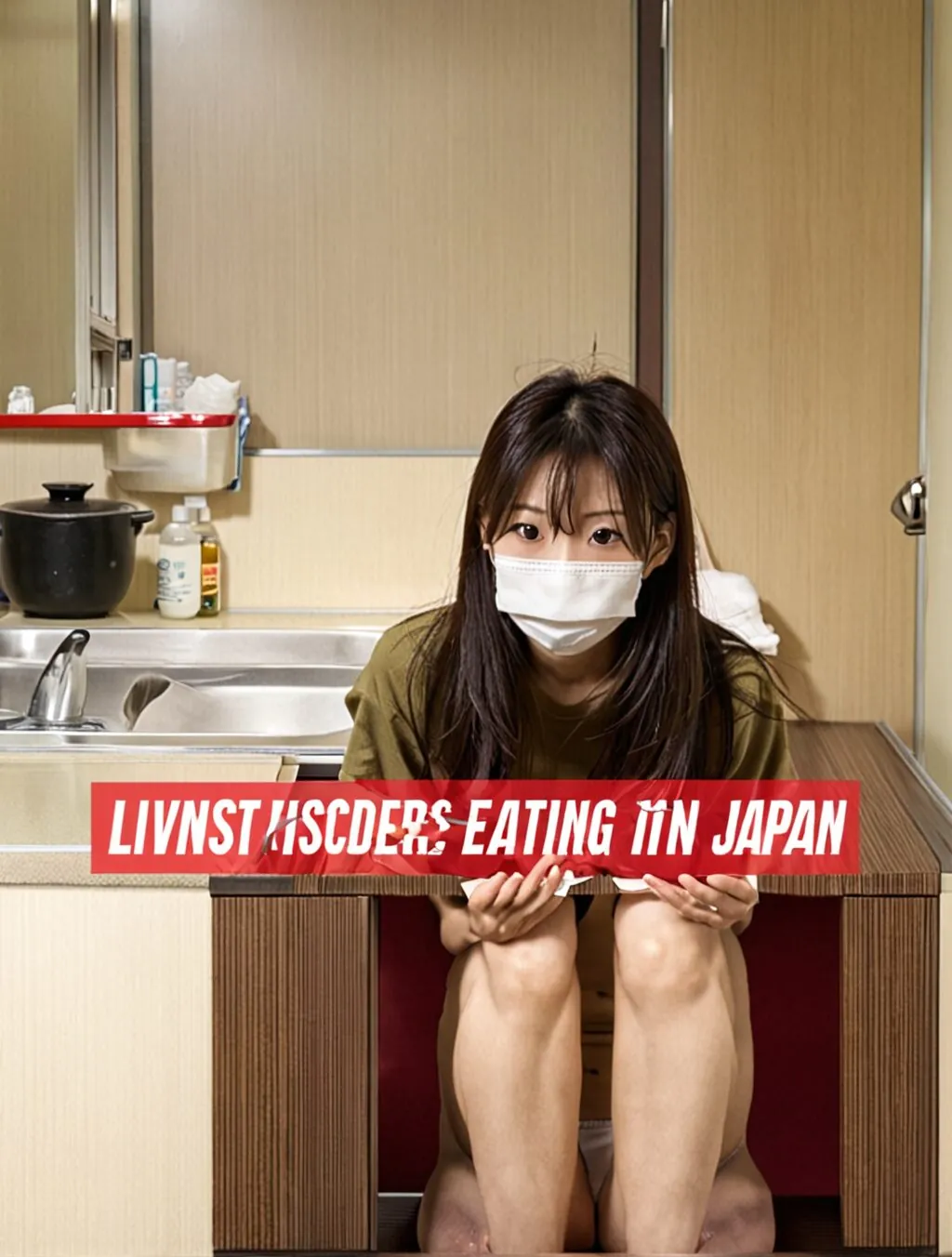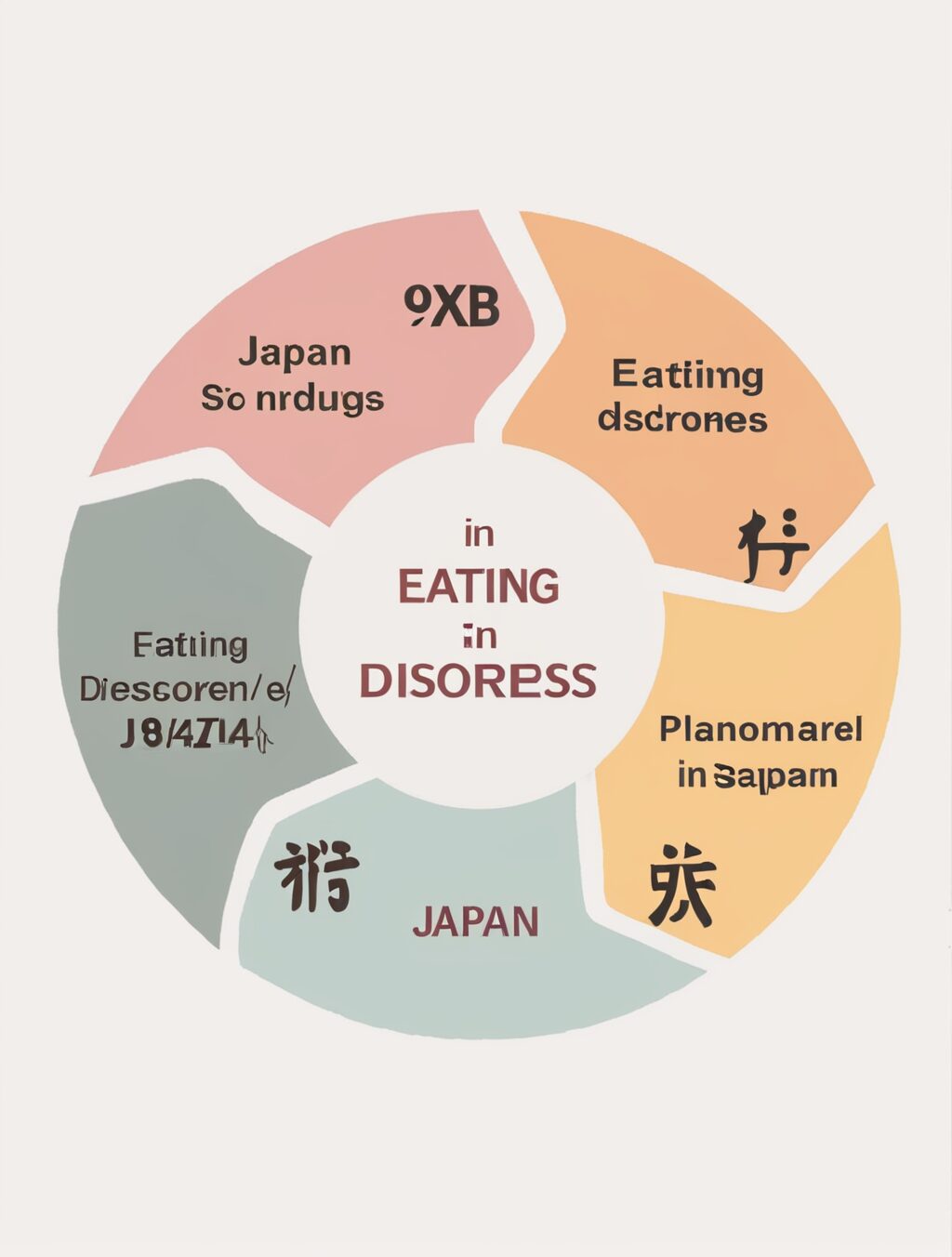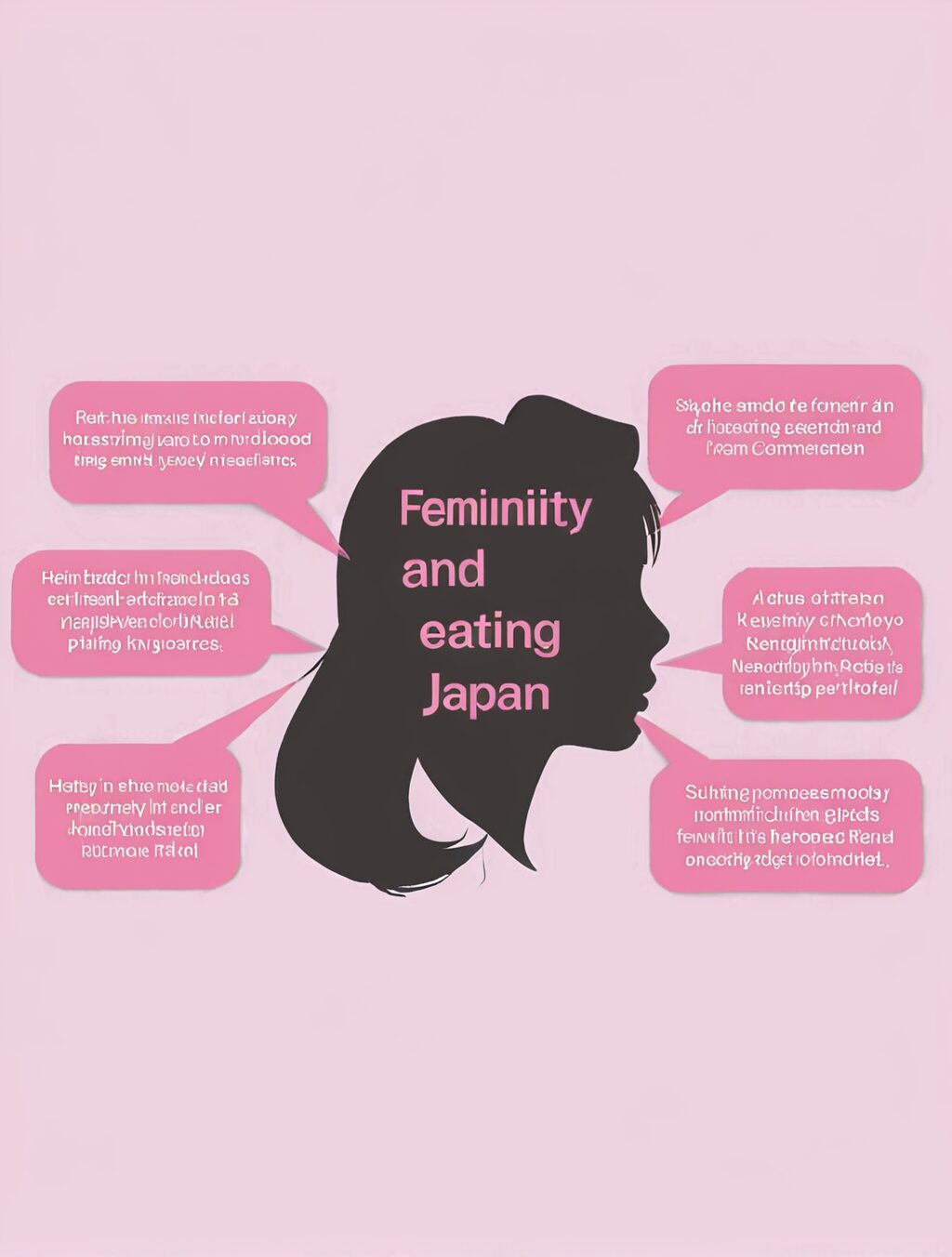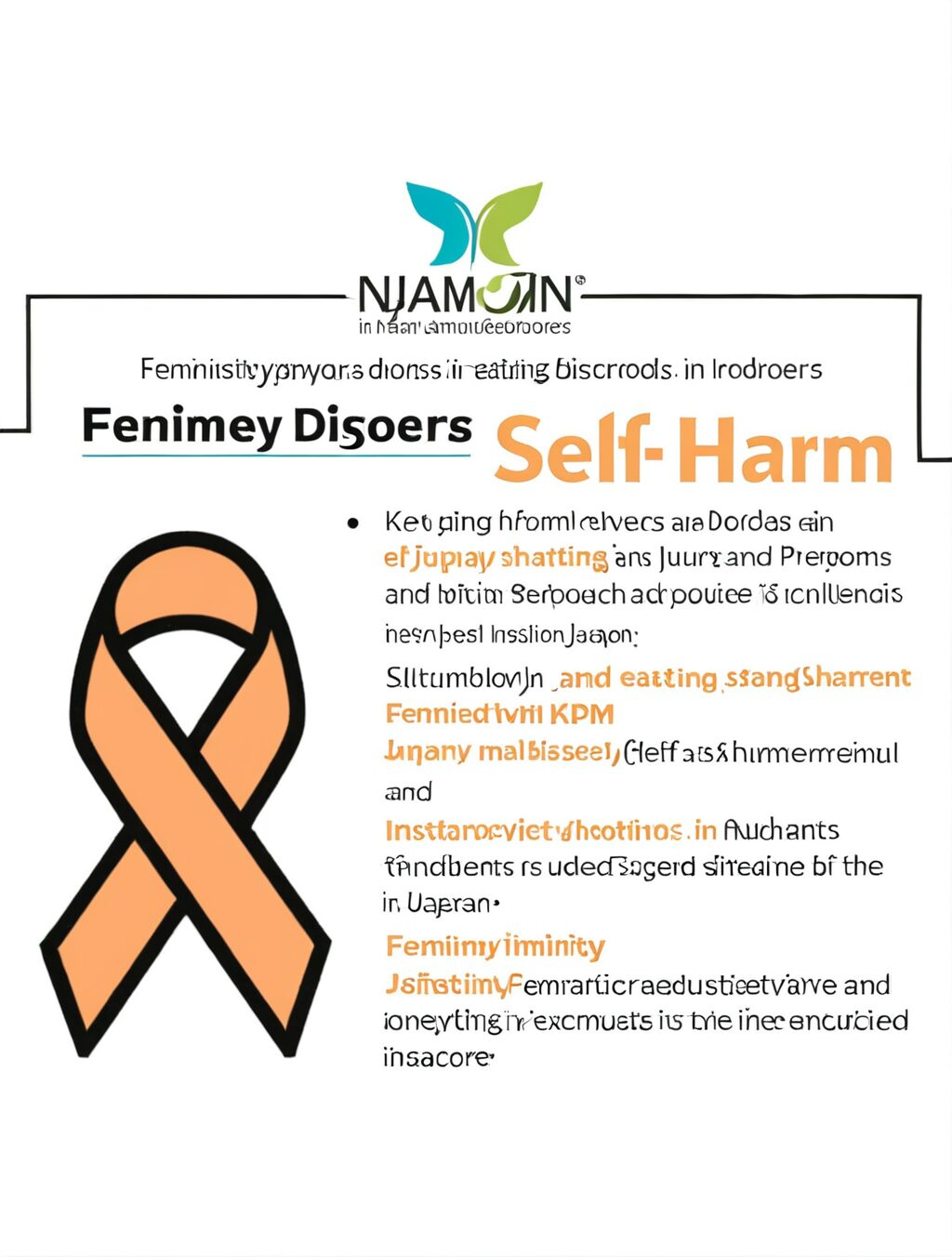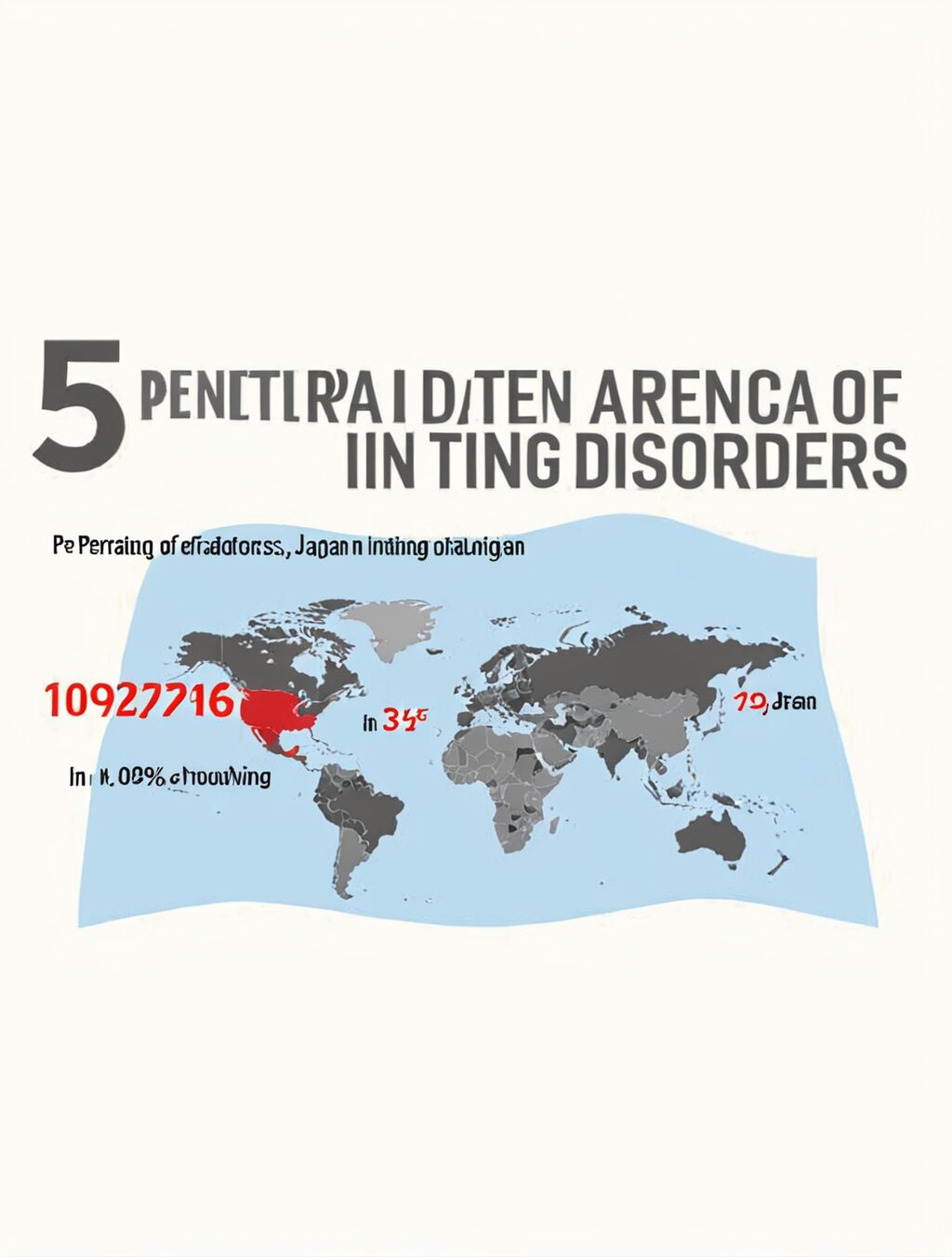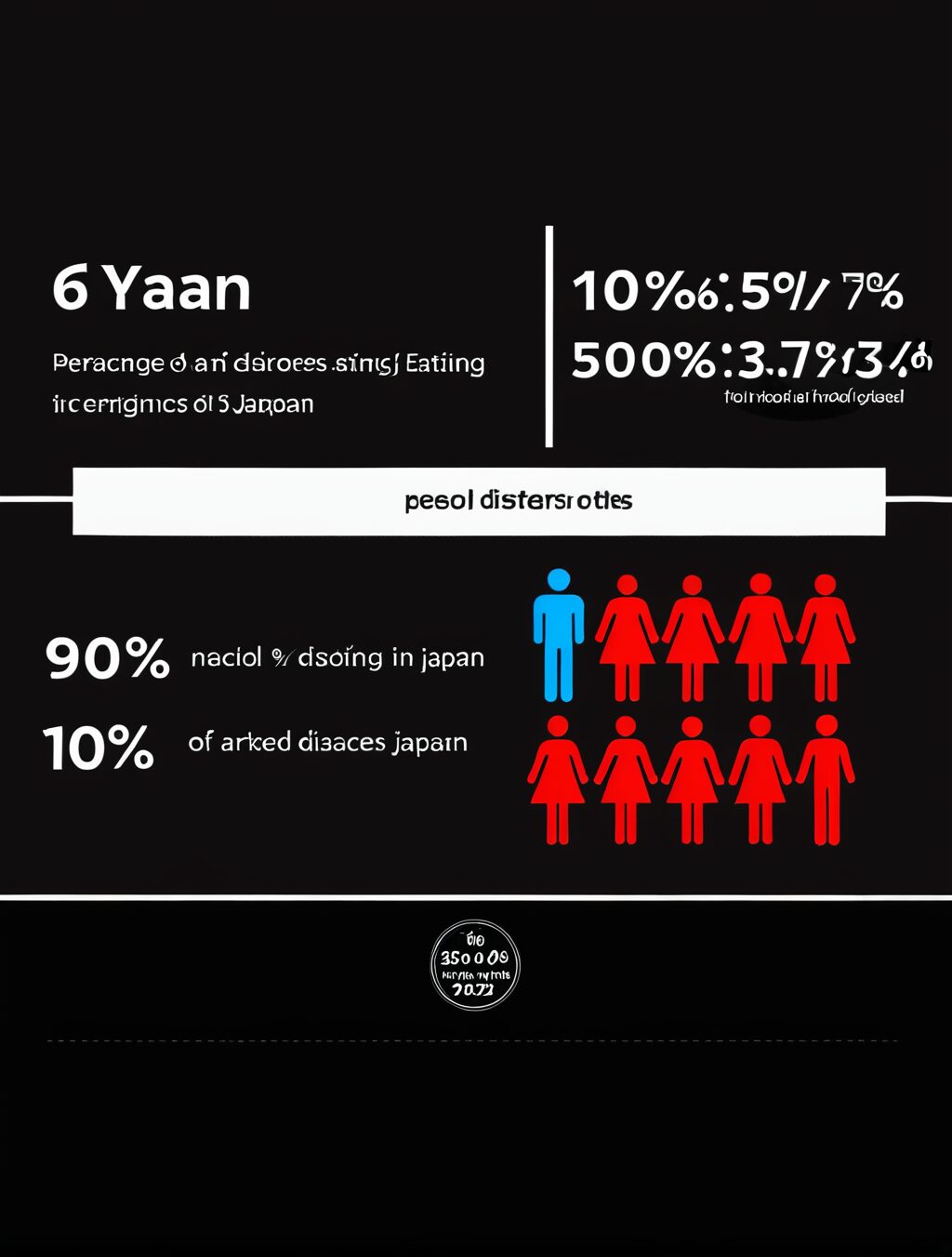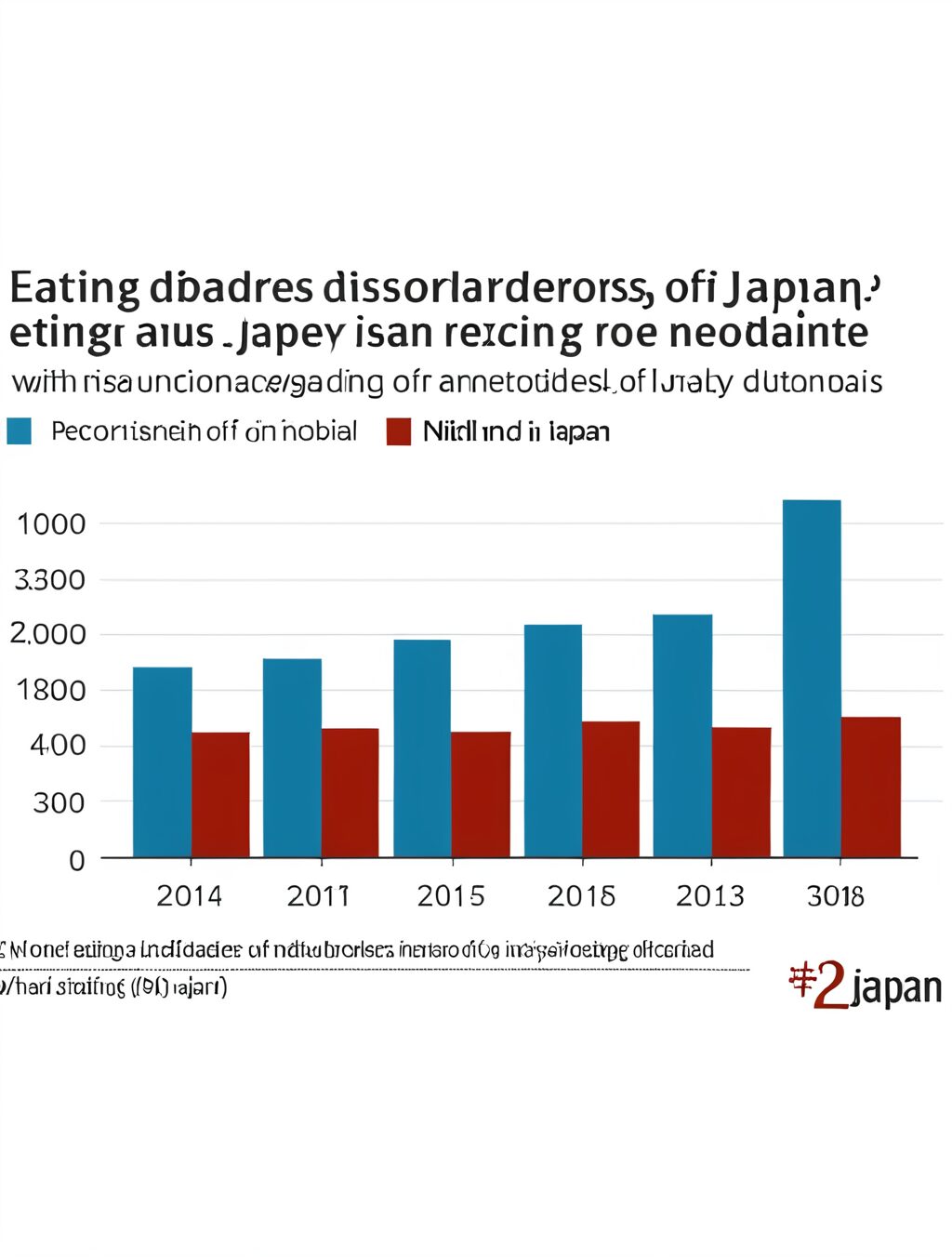Eating Disorders in Japan
Win a Free Trip to Japan!
Experience cherry blossoms and ancient temples
Eating disorders are a serious issue in Japan, with an estimated 2.3 million people suffering from them. The most common eating disorder in Japan is anorexia nervosa, which is characterized by an intense fear of gaining weight, a distorted body image, and severe food restriction. Other common eating disorders in Japan include bulimia nervosa, binge-eating disorder, and avoidant/restrictive food intake disorder (ARFID).
Eating disorders can have a devastating impact on both the physical and mental health of those who suffer from them. People with eating disorders may experience a variety of health problems, including malnutrition, heart problems, kidney problems, and bone loss. They may also experience depression, anxiety, and suicidal thoughts.
What are the causes of eating disorders in Japan?
There are a number of factors that can contribute to the development of an eating disorder, including:
* **Cultural factors:** Japanese culture places a high value on thinness and beauty. This can lead to people feeling pressure to conform to these ideals, which can trigger an eating disorder.
* **Family factors:** People who have a family history of eating disorders are more likely to develop one themselves.
* **Personal factors:** People who have low self-esteem or who are perfectionists are more likely to develop an eating disorder.
* **Biological factors:** Some people may be more genetically predisposed to developing an eating disorder.
What are the symptoms of eating disorders in Japan?
The symptoms of eating disorders in Japan vary depending on the type of disorder. However, some common symptoms include:
* **Anorexia nervosa:** People with anorexia nervosa may experience extreme weight loss, a distorted body image, and severe food restriction. They may also have difficulty concentrating, fatigue, and constipation.
* **Bulimia nervosa:** People with bulimia nervosa may binge on food and then purge it by vomiting, using laxatives, or exercising excessively. They may also have dental problems, acid reflux, and irregular heartbeats.
* **Binge-eating disorder:** People with binge-eating disorder may eat large amounts of food in a short period of time and feel out of control during their binges. They may also have weight gain, obesity, and high blood pressure.
* **ARFID:** People with ARFID may have difficulty eating due to a lack of interest in food, fear of choking, or sensory sensitivities. They may also have nutritional deficiencies and weight loss.
How are eating disorders in Japan treated?
Eating disorders in Japan are typically treated with a combination of therapy and medication. Therapy can help people with eating disorders to understand the underlying causes of their disorder and to develop healthy coping mechanisms. Medication can be used to treat the symptoms of eating disorders, such as depression and anxiety.
What is the prognosis for people with eating disorders in Japan?
The prognosis for people with eating disorders in Japan varies depending on the severity of their disorder and the type of treatment they receive. However, with early intervention and treatment, most people with eating disorders can recover and live full and healthy lives.
FAQs
* What are the most common eating disorders in Japan?
The most common eating disorders in Japan are anorexia nervosa, bulimia nervosa, binge-eating disorder, and ARFID.
* What are the symptoms of eating disorders in Japan?
The symptoms of eating disorders in Japan vary depending on the type of disorder. However, common symptoms include extreme weight loss, distorted body image, severe food restriction, bingeing, purging, and difficulty eating.
* How are eating disorders in Japan treated?
Eating disorders in Japan are typically treated with a combination of therapy and medication.
* What is the prognosis for people with eating disorders in Japan?
The prognosis for people with eating disorders in Japan varies depending on the severity of their disorder and the type of treatment they receive. However, with early intervention and treatment, most people with eating disorders can recover and live full and healthy lives.
Conclusion
Eating disorders are a serious mental health issue that can have a devastating impact on the lives of those who suffer from them. If you or someone you know is struggling with an eating disorder, it is important to seek professional help. Early intervention and treatment can improve the chances of recovery and lead to a full and healthy life.

